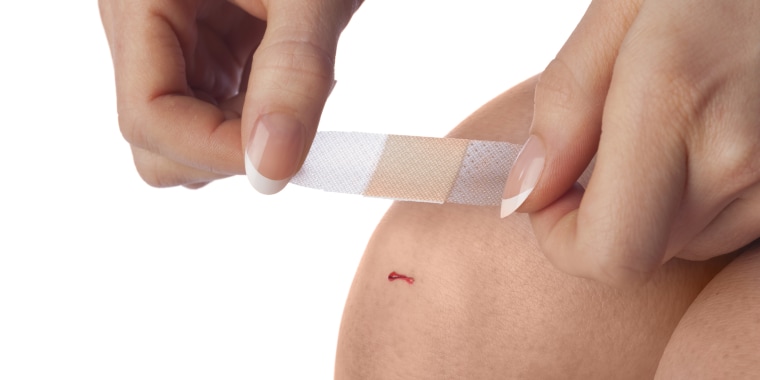The longer Americans stay vigilant about the new coronavirus, the more concerns emerge about how to stop its spread.
Here are more answers to common questions about the pathogen that causes COVID-19:
Can the new coronavirus be spread through an open cut, wound or scratch?
This is not known to be a way to transmit the virus, said Dr. Michael Ison, an infectious disease physician at Northwestern Medicine in Chicago.
It’s conceivable, but there’s no data to back it up, added Dr. Joseph Vinetz, an infectious disease doctor at Yale Medicine in Connecticut.
“I have seen zero evidence" for bloodborne transmission, Vinetz told TODAY.
Download the TODAY app for the latest coverage on the coronavirus outbreak.
While it makes sense a pathogen could enter the body through a cut, a virus has to attach to its specific receptor on the surface of a susceptible host cell to start an infection, according to the American Society for Microbiology.
In the case of the new coronavirus entering through a cut, “the receptors aren’t there,” Ison said. The most common way the virus spreads is through the respiratory route — when an infected person coughs or sneezes on someone nearby, or when people touch a contaminated surface and then touch mucous membranes on their face.
So if you feel better by wearing a Band-Aid on a cut to keep out this particular virus, it’s fine, but Vinetz had “no rationale to support that.”
If an infected person sneezes or coughs on your salad, can you get the virus from eating it?
That hasn’t been well studied, but it’s possible, both experts said.
“We’re seeing both respiratory as well as gastrointestinal presentations of COVID-19 and we don’t really understand that,” Vinetz noted. “So it’s certainly possible because the receptor for the virus is present on cells in the gastrointestinal tract.”
Still, it's very unlikely to contract the coronavirus from takeout meals, experts have previously told TODAY, especially when ordering directly from restaurants that you trust have good food safety protocols in place.
Can flushing the toilet spread the virus?
A recent report in Forbes warned about the potential of the virus being suspended in a “toilet plume” of aerosols created when a person flushes the toilet with the lid open after using the bathroom.
That hasn’t been studied well enough to make an official recommendation, Ison said. It’s not something Vinetz was concerned about when it came to this virus since the vast majority of transmission happens through the respiratory or “touching objects” route, he noted.
“The advice is focus on the important things, not on obscurities,” Vinetz said.
That means following the advice that’s been repeated many times: Washing hands, staying home, social distancing and wearing a non-medical grade mask when in public.


